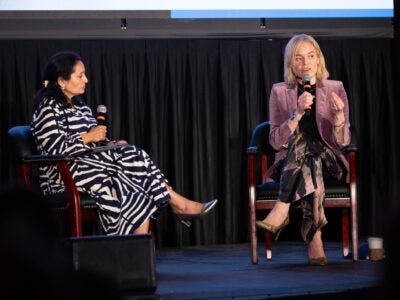August 26, 2025

International Symposium on Online Journalism
A program of the Knight Center for Journalism in the Americas at the University of Texas at Austin

Blogs | April 8, 2005
In his final, farewell column in the San Jose Mercury News, the respected technology journalist Dan Gillmor said Silicon Valley’s “willingness — no, eagerness — to take risks has always been the valley’s most special quality.” Silicon Valley’s culture of risk-taking has undoubtedly rubbed off on Gillmor during the 10 or so years he has … Read More

Registration | April 7, 2005
The University of Texas School of Journalism will be hosting the Sixth International Symposium on Online Journalism Friday, April 8 and Saturday, April 9 to discuss issues that face multimedia and online journalism today. Rosental Alves, a professor at UT Austin and the director of the Knight Center for Journalism in the Americas, is running the … Read More

Research | April 20, 2004
Nations are “imagined communities” reinforced by the media, and online journalism has used the Internet to help maintain these communities by recreating nations on the Web, said a panelist during the fifth annual International Symposium on Online Journalism on Saturday. “Diasporic groups (people living in a foreign country) use the Internet and TV to maintain contact … Read More

Research | April 20, 2004
Multimedia journalism not only creates global connections between users but also greater understanding of current events and how they are globally perceived, said panelists discussing the wired world’s impact on journalism. Jeremy Edwards, a University of Texas at Austin graduate student, said during the International Symposium on Online Journalism that surfing the Internet is like … Read More

Citizen Journalism | April 20, 2004
Wiki wiki — Hawaiian for “quick” — is at the root of Wikipedia, a encyclopedia website where any page can be edited by users with the simple click of an “edit this page” button. Andrew Lih, assistant professor at Hong Kong University, compared the different levels of participation between web sites, web logs and “wikis” … Read More

Featured | April 17, 2004
“Multimedia” is a dynamic form of journalism that engages the audience and uses interactivity to help tell a story, a UT doctoral student presenter said Saturday during the fifth annual International Symposium on Online Journalism. Multimedia’s integration of more than one medium has allowed for an extension of reporting that has been great for young … Read More

Blogs | April 17, 2004
The emerging practice of blogging raises new questions about the nature of journalism and the role of the journalist, researchers said in a panel discussion Saturday at the fifth annual International Symposium on Online Journalism. “A cross between a column, a news story and a journal, the journalist’s weblog (or J- blog) has started to … Read More

International | April 17, 2004
Online newspaper headlines are doing a poor job of presenting information to readers, said the editor of the online edition of the leading Colombian newspaper. “If you have the attention of the reader, you need to present new information,” said Guillermo Franco, editor of ElTiempo.com, based in Bogota, Colombia. “There is a lot of information … Read More

Research | April 17, 2004
Research in online journalism seems to provide just as many questions as it does answers, said participants in a panel on online journalism research. In the studies presented for the panel, journalists and academics looked at ways for online journalism to improve in terms of content, design and resources. “We have to experiment,” said Guillermo … Read More

Engagement | April 17, 2004
A new stage of a study that tracks the eyes of people using news Web sites will provide important insight into the patterns of online viewership, a senior editor at the Poynter Institute said Saturday. “With the Eyetrack III we can track the online news consumer’s behavior in the age of multimedia,” said Steve Outing, … Read More